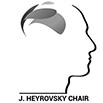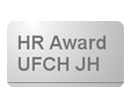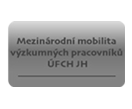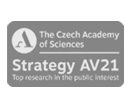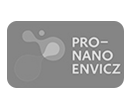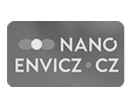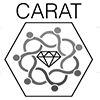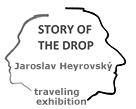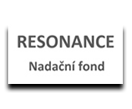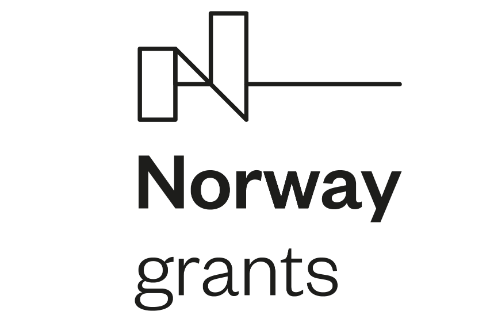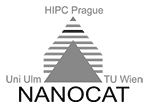Obituary - Rudolf Zahradník
Rudolf Zahradnik, whose defining work was in quantum chemistry, died on 31 October 2020 in Prague, Czech Republic.
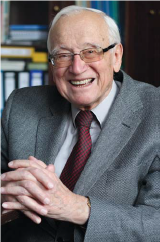
Born on 20 October 1928, Rudolf made his first chemical experiments in his early teens; he was driven by a sense of adventure fostered by his membership in the Boy Scouts. After World War II, he graduated from a vocational high school and attended Prague’s Institute of Chemical Technology. For his 1956 PhD, which he received from the Institute of Occupational Medicine, Rudolf discovered new organizing principles for the toxicity of aliphatic compounds and the stability of sulfur heterocycles. In his other early groundbreaking work, he found correlations between the electronic spectra of conjugated systems and the energy gaps between their highest occupied and lowest unoccupied molecular orbitals.
In 1961 Rudolf joined the Institute of Physical Chemistry of the Czechoslovak Academy of Sciences—now the J. Heyrovsky Institute of Physical Chemistry of the Czech Academy of Sciences. But he was denied a professorship because the Czechoslovak Communist authorities regarded him as politically suspect.
The authorities’ fears that Rudolf would corrupt the youth were more than justified: His noblesse, critical thinking, insight, and decency were truly contagious, and his sense of responsibility was a constant challenge to those who ruled the country after the Soviet-led invasion in 1968.
Rudolf did what was right and proper regardless: Principled, conscientious, and upright, he did his best to produce quality work with all-out dedication—and exhorted others to do the same. With Jaroslav Koutecky and his associates in the 1960s, Rudolf launched the Prague School of Quantum Chemistry. Despite the emigration in 1968 of some of its protagonists, among them Koutecky, Jiři Čižek, and Josef Paldus, the school continued to flourish through the dark 1970s and 1980s. Rudolf was a generous mentor and reliable friend to countless students and colleagues. During bad times, he could find encouraging words even in seemingly hopeless situations.
Despite the political oppression, the authorities failed to forestall recognition of Rudolf’s work by his colleagues at home and abroad. He would host in Prague and at his country house numerous living legends of quantum chemistry— among them Charles Coulson, Roald Hoffmann, and John Pople—whom the Czechoslovak community would not have otherwise been able to meet. Over time, Rudolf himself would become a living legend.
By the time the Velvet Revolution forced out the Communist government in 1989, Rudolf was ready for high office. He was elected director of the Heyrovsky Institute in 1990 and spent the next three years transforming it into a modern institution. About 60 students and collaborators shared Rudolf’s overarching interest in reactivity and spectroscopy. In his memoir, Laboratorní deník: zač jsme bojovali (Laboratory Notebook: What We Fought For), Rudolf referred to five of his students—bJosef Michl, Petr Čarsky, Pavel Hobza, Zdeněk Havlas, and Pavel Jungwirth— as his “doctoral sons.” Angela Merkel was a postdoc of Rudolf’s a year before the fall of the Berlin Wall.
In 1993 Rudolf became the founding president of the Czech Academy of Sciences and the following year the founding chairman of the Learned Society of the Czech Republic. But governmental positions, including the Czech presidency, did not materialize, to the detriment of the country. Vaclav Havel envisioned Rudolf as his successor, but to no avail.
Rudolf often compared the cultural policies and attitudes toward academia of the two totalitarian regimes he lived through: “national and real socialism” (self-descriptions of Nazism and Soviettype Communism). Neither proved capable of extinguishing Rudolf’s enthusiasm for science nor of precluding him from doing what’s right. He was highly productive and respected, and during his career he authored about 370 papers and 20 books.
The list of problems Rudolf tackled is long and varied. Among them, he examined the electronic structure of nonalternant hydrocarbons and their tetracycles and found a formula for the relative stability of several classes of such compounds. His studies of the structure and properties of open-shell systems had implications for molecular spectroscopy and electron spin resonance spectroscopy, such as the equivalence of ESR signals for the radical cation and radical anion of an alternant hydrocarbon. He mapped out the stability and structure of clusters bound by weak interactions and the implications for solvation and biological catalysis. Another line of Rudolf’s research involved the rates of benchmark ion–molecule reactions on an ab initio reaction profile.
Among Rudolf’s gifts was the ability to listen to others. With his colleague Zdeněk Herman, he wrote a semisatirical piece about academia that was introduced with the motto “Everybody writes, nobody reads; everybody talks, nobody listens.”
Rudolf’s outlook developed through his symbiotic marriage to Milena, whom he met in a shelter during the Prague uprising in May 1945 and who died a week before Rudolf. Their shared approach to life also comes through in Laboratory Notebook: Rudolf plays with the metaphor that our natures are “a linear combination of good, less good, and not so good qualities” and that the point is to maximize, on the “coordinate of life,” the coefficients standing in front of the good qualities. He adds that our self-improvement “has a chance of success only if we live for others.”
Bretislav Friedrich, Fritz Haber Institute of the Max Planck Society Berlin, Germany
Source: https://physicstoday.scitation.org/toc/pto/74/6







